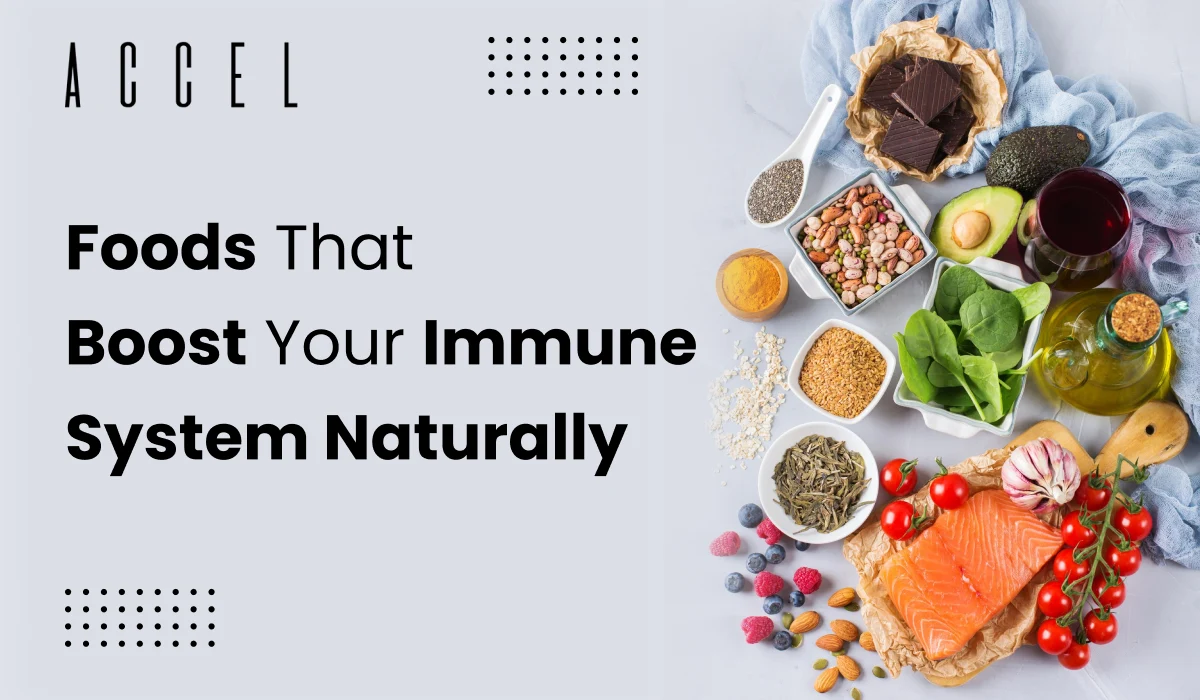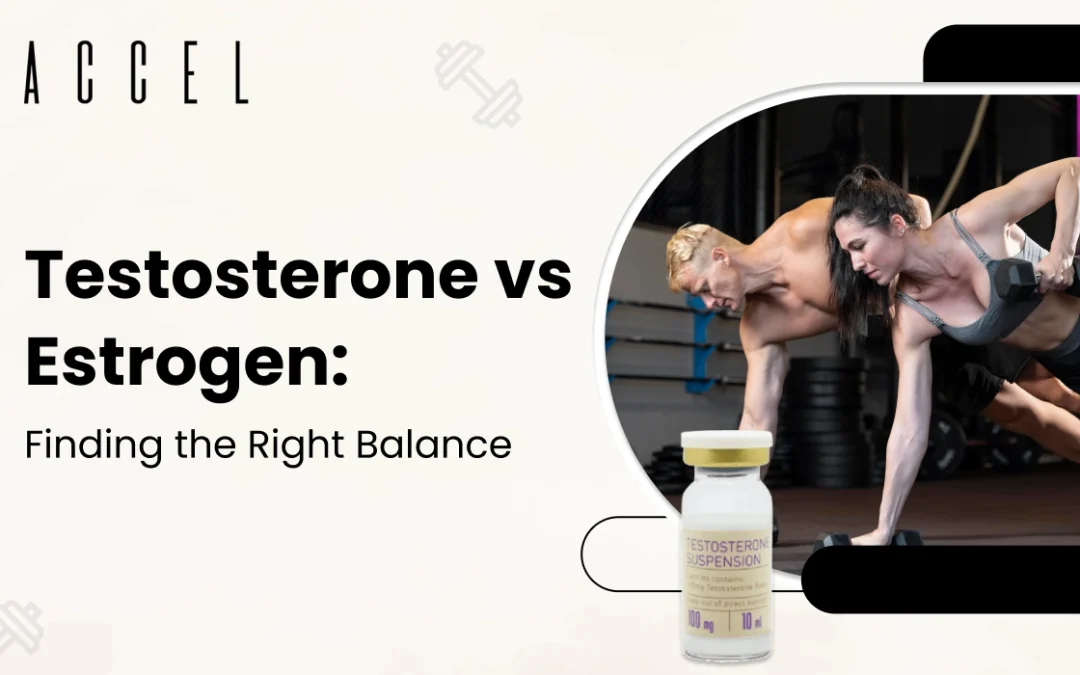Your immune system is the best defence your body has against infections, tiredness, and seasonal illnesses, but the way we live today tends to weaken it. About 70% of immune cells live in our gut, so what we eat has a direct effect on how well we fight off sickness.
Still, bad diets, stress, and not getting enough sleep have made millions of people more vulnerable. Recent polls show that one in three adults has low immunity symptoms like getting colds often, healing slowly, or being tired all the time.
In this blog, we will explore the top foods that boost the immune system, how they work, and simple ways to include them in your meals for stronger, lasting health.
Key Insights
- Around 70% of the immune system lives in the gut, so diet directly impacts immunity.
- Vitamin C–rich foods like citrus and berries help increase white blood cells and fight infections.
- Leafy greens, carrots, and bell peppers supply antioxidants and beta-carotene that protect immune cells.
- Protein sources such as eggs, fish, and legumes build antibodies and repair tissues.
- Healthy fats from nuts, seeds, and olive oil reduce inflammation and improve immune function.
- Probiotic foods like yogurt and kefir strengthen gut health and boost immune response.
- Spices such as garlic, turmeric, and ginger naturally fight bacteria and viruses.
How Can I Boost My Immune System Quickly?
To quickly boost your immune system, start by giving your body foods that are high in vitamin C. They help increase white blood cell production and fight infection.
Include anti-inflammatory healthy foods. Natural antioxidants reduce inflammation and boost immunity. Dietary probiotics can also improve gut bacteria, where most immune cells live.
To maintain your immune system year-round, eat nutrient-dense foods, exercise, and manage stress.
What are the Foods That Boost Immune System?
Here are some of the best immune-boosting foods grouped by category to help you build a balanced, protective diet.
Fruits
Fruits are essential for their rich supply of vitamins, antioxidants, and phytonutrients that defend against oxidative stress and infection.
- Citrus fruits (orange, lemon, grapefruit): Rich in vitamin C, which helps white blood cells form and heal infections. Regular use reduces cold duration and boosts pathogen resistance.
- Berries (blueberries, strawberries, blackberries): Contain anthocyanins and flavonoids, potent antioxidants that protect immune cells from oxidative damage. High-fiber foods support gut bacteria that boost immunity.
- Papaya: Vitamin C, folate, and papain reduce inflammation and improve nutrient absorption.
- Kiwi: Vitamin C, K, and E in kiwi improve iron absorption and tissue repair.
- Pomegranate: Antiviral and antibacterial ellagic acid and polyphenols reduce inflammation and improve blood flow.
Vegetables
Vegetables deliver essential micronutrients like beta-carotene, iron, zinc, and folate that are indispensable for immune function and cellular health.
- Broccoli: Rich in vitamins A, C, E, and sulforaphane, which boosts detoxification and antioxidant pathways.
- Spinach and kale: Iron, magnesium, and beta-carotene aid oxygen transport and white blood cell activity. Folate aids DNA and immune cell formation.
- Red bell peppers: Have beta-carotene and almost double the vitamin C of oranges for skin and mucous membrane protection.
- Sweet potatoes and carrots: Rich in beta-carotene, which turns into vitamin A and protects skin and respiratory linings.
- Garlic shoots, ginger root, and onions: Offer sulfur compounds and antioxidants that help modulate immune activity and inhibit harmful microbes.
Proteins
Proteins provide amino acids for immune-boosting antibodies, enzymes, and signaling molecules.
- Lean meats (chicken, turkey): Provide zinc, iron, and vitamin B6, all crucial for T-cell development and immune signalling.
- Fatty fish (salmon, tuna, mackerel): Contain omega-3 fatty acids (EPA and DHA) that lower systemic inflammation and enhance white blood cell performance.
- Eggs: Vitamin D and selenium boost antiviral defenses and immune cell balance.
- Legumes (lentils, chickpeas, beans): Excellent plant-based sources of zinc, iron, and protein, supporting energy metabolism and immune cell synthesis.
- Tofu and tempeh: Provide complete plant protein and isoflavones, which reduce inflammation and boost immunity.
Immune-boosting antibodies, enzymes, and signaling molecules use protein amino acids. Along with natural hormones, these amino acids aid muscle repair and body recovery. Read more about what is human growth hormone and its role in health and performance to understand how this works.
Healthy Fats
Healthy fats are essential for absorbing fat-soluble vitamins (A, D, E, and K) and regulating inflammatory processes.
- Nuts & seeds (almonds, walnuts, sunflower seeds): Contain vitamin E, an antioxidant that protects immune cells from oxidative stress. Walnuts also offer omega-3 fatty acids that support brain and immune health.
- Olive oil: Oleic acid and polyphenols in olive oil reduce inflammation and boost cardiovascular and immune function.
- Avocados: Neutralize free radicals and repair cells with monounsaturated fats, vitamin E, and glutathione.
- Flaxseeds and chia seeds: Contain alpha-linolenic acid (ALA), a plant-based omega-3 fatty acid known to support immune regulation and reduce chronic inflammation.
Other Immune-Supporting Foods
These functional foods add an extra layer of protection through antimicrobial, anti-inflammatory, and probiotic properties.
- Garlic: Allicin boosts macrophage and lymphocyte activity, killing viruses and bacteria.
- Ginger and turmeric: Antioxidants gingerol and curcumin reduce inflammation and protect against oxidative stress.
- Yoghurt, kefir & fermented foods: Introduce beneficial probiotics that maintain gut microbiome diversity. It’s crucial because 70% of immune cells are in the gut.
- Green tea: EGCG, an antioxidant, boosts immune cell function and may inhibit viral replication.
- Dark chocolate: Moderately consumed flavonoids balance immune activity and reduce stress-induced inflammation.
- Mushrooms (shiitake, maitake, reishi): Contain beta-glucans, compounds that activate immune cells and improve the body’s ability to fend off pathogens.
By mixing the best foods for immune system, you build a nutrient-dense foundation that boosts defenses, speeds recovery, and reduces chronic inflammation.
Conclusion
Consistent, healthy choices boost immunity. Consuming citrus fruits, leafy greens, fatty fish, nuts, and fermented products gives your body the vitamins, minerals, and antioxidants it needs to fight infections and repair itself. You can also explore safe options and buy steroids online from verified sources for specific medical or performance needs under professional guidance.
When you care for your body from the inside out, it rewards you with resilience, energy, and vitality. And if you’re exploring ways to optimise overall wellness, science-backed solutions from Accel Pharm can further complement your immune-boosting routine.
Frequently Asked Questions
1. What are the signs of a weak immune system?
Colds, infections, slow wound healing, fatigue, and digestive issues are common. These symptoms may indicate nutrient deficiencies or lifestyle immune-lowering factors.
2. How can I boost my immune system quickly?
Try Vitamin C-rich foods like citrus and kiwi, anti-inflammatory turmeric and ginger, and probiotic yogurt or kefir. Hydrating, sleeping well, and avoiding processed foods boost immunity quickly.
3. What is the most immune-boosting food?
No food works alone, but citrus fruits, garlic, spinach, yogurt, and fatty fish support immune cell function and reduce inflammation best.
4. Which foods fight viruses?
By increasing immune activity and reducing oxidative stress, antioxidant-rich foods like green tea, garlic, turmeric, and berries may help the body fight viral infections.
5. What are the foods that boost the immune system naturally?
Fresh fruits, leafy vegetables, nuts, seeds, legumes, fish, and fermented foods help maintain a healthy immune system.




